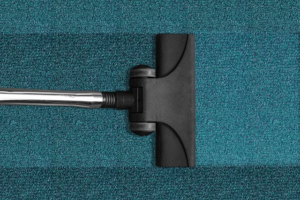If you’ve experienced flooding due to a natural disaster, you’ve got many concerns on your mind, such as how to replace your ruined belongings and how much the damage will cost. One thing you may not be worrying about is “does flooding damage foundation?” Failing to ask this can cause serious problems later.
TN Flood Kings can assist you with your flooded foundation, from diagnosis to repairs; we’ll guide you through the whole process and work with your insurance company if possible to ensure you don’t need to worry about coordinating with them.
Foundation damage is both dangerous and difficult to replace, potentially causing thousands of dollars, but many homeowners don’t know how hard flooding is on their foundation, or how to identify signs that their foundation is affected.
Let’s take a look at the basics of foundations, as well as what you should do as soon as you fear foundation damage due to flooding.
How Foundations Can Be Damaged By Flooding
There are a few ways that flooding can damage your foundation, including the force of the water, soil saturation, and erosion.
Water Force
Flood water often moves incredibly fast, which exerts enormous pressure on any structures in its way. Water moving just 10 miles per hour has the same strength as an EF5 tornado (about 270mph): this gives you an idea of just how dangerous the force of water pushing on the home can really be. This can shove the house off the foundation, which will lead to buckling and twisting.
Soil Saturation
Floods happen because the soil is totally saturated, and this means that your home’s foundation is completely surrounded by water. This will cause the concrete to expand and soften; then, when the water recedes, it will shrink again, which can cause cracks in the main structure. All foundations, no matter their type, are vulnerable to this type of damage.
Erosion
Middle Tennessee soils tend to have a high limestone content, and limestone is famously both porous and easily eroded; this soil is why we have the beautiful Cumberland Caverns so close by! Fun as it is to visit caves, this is the last thing you’d like to develop underneath your home.
For a foundation to be effective, it must be on entirely level ground so that the weight of the home is evenly distributed. Flood waters often wash away a massive amount of soil from under your foundation, something called undercutting. Without a level base on which to rest, the home’s weight is no longer evenly distributed, and this will lead to stress on specific parts.
Foundation Types and Their Risks

There are several different types of foundations, each of shiwch is under different pressures from flood damage.
Concrete Slab Foundations
Most homes sit on top of concrete slabs: they’re cheap, easy, and sturdy. However, concrete is a surprisingly porous material, and if it is saturated by water for a prolonged material, it will begin to expand and buckle.
This type of foundation is particularly vulnerable to undercutting because it’s shallower than basement foundations, and they may also experience buckling and twisting as the water forces its way past the home.
Basement Foundations
As the name suggests, this is a foundation that encapsulates a basement or crawl space. The basement is sunk into level ground, with a foundation built up around it; it may be cut into a hill, called a “daylight basement,” or fully submerged. They are not as common in Tennessee as in Midwestern and Northern states.
This structure is highly susceptible to flooding when the soil above gets inundated. Not only does this allow water to pour in and ruin your living space, but it can also cause cracks in the masonry block foundation wall surrounding the basement, leading to structural damage.
Raised Foundations
Also known as pier foundations or beam foundations, a raised foundation lifts the house slightly above the ground, which ensures that water doesn’t seep into the living space of the home. They are more common in Middle Tennessee due to flood risks, and they may often be found in homes located closer to the Cumberland or Harpeth rivers.
While these are excellent at preventing water from entering the living space, they are still vulnerable to undercutting because, like concrete slabs, they are relatively shallow compared to buildings with basements. If the flood water is very high, the house may also be pushed off the foundation and cause buckling.
Warning Signs of Foundation Problems

Commonly sighted signs of foundation damage include the following:
- New cracks in the walls and floors, especially on basement walls
- Splitting crown molding
- Sloping floors
- Foundation cracks, most obvious with raised foundations
- Mildewy smell in the basement or crawl spaces
- Visible mold growth
- Condensation on the walls and floors
- Garage door, interior doors, and windows sticking when it’s not humid out
- Tilted entrance ways
If you notice any of these issues after significant water damage, call us so that we can identify if it’s due to foundation damage.
What Should I Do If There Is Foundation Damage Due to Flooding?
Foundation repair must always be dealt with by a professional, as it is an important structural component of the house. You should call TN Flood Kings as soon as you can so that we can perform an assessment of the foundation damage and make an action plan.
Depending on the level and type of damage, you may need to evacuate your home, as it is no longer structurally sound.
There are some steps you can take to help reduce the damage and prepare for us to identify foundation issues.
Remove everything from the flooded space: Take all high value items out of the basement or crawlspace so that they don’t suffer further damage.
Extract all standing water: You should shut off electricity and water in any area that has gotten wet, then run an extension cord from a dry area of the home. You can use a shop vac for a small amount of water, or contact a water extraction company when there is a lot of standing water.
Run fans and dehumidifiers: The next logical step is evaporating the rest of the water with fans and dehumidifiers.
Call for Professional Foundation Repairs: Once the area is dry, get in touch so that we can assess the water damage and get to work.
Is Foundation Damage From Flooding Covered by Insurance?
Unfortunately, a flood event is usually not covered by homeowners insurance. You need special flood insurance, available through the National Flood Insurance Program, to cover foundational damage from flooding.
If you do have insurance coverage for flood damage, we’ll work directly with your insurance agent so that you don’t need to worry about claims paperwork while you’re dealing with flood cleanup.
How To Prevent Foundation Flood Damage
While it’s not always possible to prevent flood damage to your foundation, there are certain precautions you can take in order to reduce the likelihood of major losses from flood damage.
Place valuable items like HVAC systems off the ground: Place these on slabs of their own to reduce property damage.
Install a sump pump and dehumidifiers in basements: This won’t deal with saturated soils or water forces, but it will reduce the continual presence of moisture in the foundation.
Install downspouts and keep them in good condition: Downspouts direct water away from your home, which will keep heavy rain from penetrating the foundation.
Have your foundation examined after heavy storms: You can perform a visual check and then call foundation repair services if necessary, or make a plan to have your home inspected at least once a year for cracks or foundation movement.
Call TN Flood Kings 24/7 to Assist With a Flooded Foundation! We Provide a Free Estimate and IICRC-Certified Staff!








